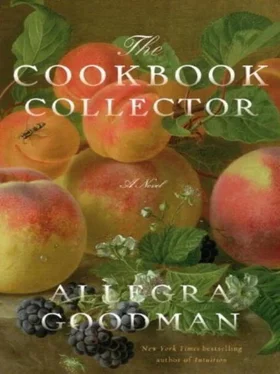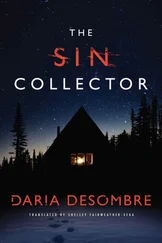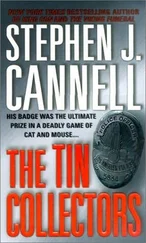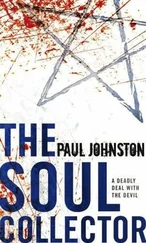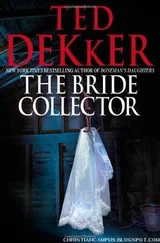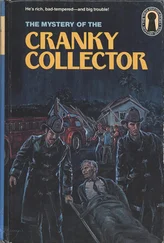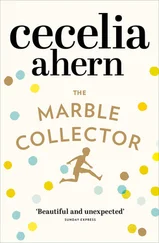“You forget,” Nick told Raj, “that I’m actually interested in new technology. I’m not a thrill seeker. I’m investing in the information revolution.”
Raj held out his glass for George to refill. “Violence is luxury, and in America the revolution comes with a prospectus and a public offering.”
“Do you really think we’re all so decadent?” asked George.
Raj cast his eyes over the enormous room with its bookcases like upended treasure chests, its massive beams, its woods glowing in the firelight and resonating with the crackling logs so that the whole house seemed cello-like. “We’ve got an acquisitive gene. We want and want, and there’s no way around it.”
“I think you’re discounting the nature of discovery,” George said. “You forget that some aesthetic experiences satisfy. This wine, for example.” He held up his glass. “This Petrus is an end in itself. I want nothing more than to taste this wine.” He grasped the thick edge of his armrest. “This chair. This oak is solid. There are objects sufficient in themselves, and experiences which are complete. There is such a thing as excellence, and I do know it when I see it, and when I find it I am fulfilled. I don’t want to keep on hunting endlessly. If I’m restless, that’s not because I want to be or because I can’t help it. I’m not chronically dissatisfied; I’ve been disappointed. There’s a difference. When I discover something beautiful and right and rare, I’m happy. I’m content. I am …”
“What did you discover that’s so beautiful and right and rare?” asked clever Raj.
“You’ll be jealous,” George demurred, savoring his secret. “Consumed with jealousy.”
“Try me.”
“I’m not going to tell you.”
“Animal, vegetable, or mineral?” asked Nick.
George thought of the recipes for trout and leeks, the descriptions of sea salt. “All of the above.” How he delighted in puzzling his friends. How he loved secrecy. Childishly, tipsily, he enjoyed his secret so much that he could not keep it any longer. “I’ve discovered a cookbook collection. A great one. You can come with me to the owner’s house and look. You can touch them if you like, but you can’t have them. I made her promise.”
“Who is she?” Nick asked. “Is she a whom?”
“She is not a whom; she is a witch, and she lives in a little house crammed with crap, and a cat named Geoffrey.”
At which Raj began to sing in a light tenor: “For I will consider my cat Jeoffry. / For he is the servant of the living God duly and daily serving him …”
“These are the most important books I’ve ever found directly,” George told Nick. “I have never unearthed anything like this on my own. It’s like opening an ancient Egyptian tomb and stumbling upon a gold sarcophagus….”
“… at the first glance of the glory of God in the East he worships in his way,” Raj continued, for he had been a choral singer at Cambridge. “ For this is done by wreathing his body seven times round with elegant quickness….”
“I said I’d keep the books together. She wants a private sale.”
Raj broke off singing. “The books are good. They’re wonderful. Strange about the oven, but nothing’s burnt.”
“You saw them!”
“Yes, of course.” Raj’s eyes sparkled. He was so pleased with himself. “I saw them several weeks ago.”
Now George set down his glass of wine, and his evanescent joy burst and dissipated all at once. “Sandra showed them to you first.”
“Why wouldn’t she?” Raj asked.
“She never told me that.”
Raj shrugged.
“And you never told me either.”
“That wouldn’t have been like me,” Raj pointed out.
“Did you offer?”
“I’m considering,” Raj said.
“She promised me,” George repeated.
“What, exactly, did she promise? Did she say she would accept your unknown offer?”
“Did she accept yours?”
“She said she would consider it.”
This was maddening. George should have written Sandra a check right there. But for what amount? What was the collection worth? More than he could spend lightly. More than Raj could afford without selling off some volumes. What was the value of those books? A complicated question. Value to whom? To the dead collector who had valued privacy? To Sandra, who needed cash? To some aesthetic ideal of excellence and rarity? Honor, fear, shame, jealousy, all those factors came into play, even as George told himself that value was simply what the market would bear. “I am seriously interested,” said George, “and I believe she is seriously interested in selling to me.”
“We’ll see,” Raj replied.
“What do you mean, ‘we’ll see’?”
“As I said,” Raj told Nick. “He’s boring when he falls in love.”
It was late, past one, when Nick and Raj departed, and George began to clear the table and wash the wineglasses one by one, turning them under the running water, rubbing his fingers inside their rims. Oh, he regretted showing his hand. He rued sounding so excited before his friend and rival. Raj would never make a mistake like that, but then Raj had been a dealer longer. Sly and witty, Raj needed money, and he was brilliant, while George, who had much deeper pockets, still thought like an amateur.
The trick was not to fall in love at all. Better to pursue unfeelingly, play the market, and enjoy the chase. Better to look dispassionately at these city lights.
He poured out the last drop of the Petrus and wished earnestly that he were less earnest. He hated his sincerity, and resolved to give it up. As Raj said, it did not become him. Yes, George could be heartless on occasion. He could bargain with the best of them. Sarcasm, light banter, a cynical veneer—he could manage that, but Raj and Nick saw through him. Selfishness was one thing, but George was sentimental too. That was unforgivable. Scratch the surface and he was all enthusiasm, like the Heitz, strongest at the beginning against the French, but lacking structure in the end.
Sentimentally, he thought of Jess. Irrationally, he imagined her. Sadly, he despaired of having her. But this was not a question of pursuit. Raj would laugh at him, and Nick would look askance. His fantasies were nurturing, not predatory. If he could have Jess, he would feed her. Laughable, antique, confusingly paternal, he longed to nourish her with clementines, and pears in season, fresh whole-wheat bread and butter, wild strawberries, comté cheese, fresh figs and oily Marcona almonds, tender yellow beets. He would sear red meat, if she would let him, and grill spring lamb. Cut the thorns off artichokes and dip the leaves in fresh aioli, poach her fish—thick Dover sole in wine and shallots—julienne potatoes, and roast a whole chicken with lemon slices under the skin. He would serve a salad of heirloom tomatoes and fresh mozzarella and just-picked basil. Serve her and watch her savor dinner, pour for her, and watch her drink. That would be enough for him. To find her plums in season, and perfect nectarines, velvet apricots, dark succulent duck. To bring her all these things and watch her eat.
“Jess,” said George as she taped clear plastic covers on a complete set of P. G. Wodehouse, “can I trust you?”
She looked up from the work table, an old metal desk in the back room. “What kind of question is that?”
“I mean, can I trust you to keep a poker face if I bring you into someone’s house?”
“Whose house? Is it Sandra?” she asked immediately. “Does she really have a collection to show you?”
“You wouldn’t talk about how amazing it was, would you? You wouldn’t gush?”
“I would never gush!” Jess protested.
Читать дальше
